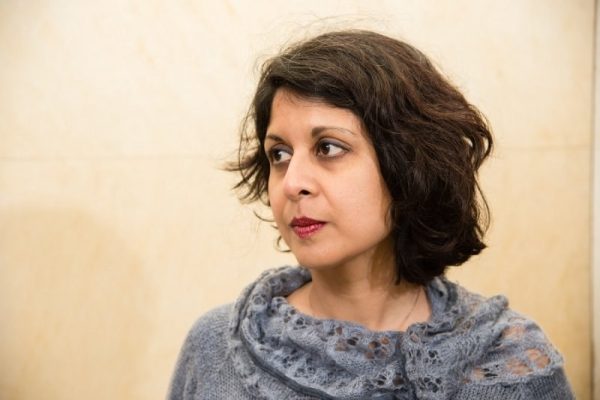The Hardest Part of Writing Poetry
Vhani Anthony Capildeo

We asked Vahni Anthony Capildeo, judge of the Wigtown Prize in this year's Wigtown Poetry Prize, some questions about their experience with poetry and their writing process. The Wigtown Poetry Prize is open to entries from across the world until 10 June, with up to £1500 available to win. If you would like to send us your poetry, visit the Wigtown Poetry Prize website.
1) What do you consider to be the hardest part of the writing process?
The hardest part of the writing process is making time and space to write. Once I can sit with my notebook and pencil (and crayons, and other materials for making marks), I feel eased away from 'myself', like how it feels to go into water with an aching body, and move differently, without the usual pull and pain. That's how it is for poetry, anyway. With prose, the hardest part for me is finding a way in for the reader. I think of my essays for PN Review as sitting between writing for the general reader, and academic writing. So, instead of constructing an 'argument' or 'thesis', sometimes I hope to give a sense, an atmosphere, the feeling of thinking with or through or against certain texts, in certain places. For example, I wanted to write about stiltwalking and the poetics of Trinidad and Tobago's Moko Jumbies (stiltwalkers with a connection to West African diaspora religious powers). They 'touch the sky' (in their own phrase) but also are inspired by politics, nature, and contemporary innovative literature. I blended the 'story' of encountering them in situ with reflections on their art, and on the still-existing class stratifications and intermingling of colonial violence with natural beauty in the islands' heritage. It's hard to convey in words something that feels like a series of gasps and glimpses.
2) What led you to writing poetry?
Again, often the question of time and space; I work on precarious commissions and fixed-term contracts, and live alone, so there isn't a cup of tea waiting for me at the end of a writing shift; the dust in the room doesn't stir unless I stir it, the kettle doesn't go on unless I see to it. It's easier for me to hold the vibrations (sound and image) of poems in my memory, and work on shaping phrases, while moving through the day working on a variety of projects, sometimes in a variety of places. I don't have the continuity to build a large world of words like novelists do. More positively, the possibilities of exploring musical and visual dimensions in language, dream-like states, and so on, are more attractive to me in poetry; when I write prose, I want to make sense, but when I write poetry, I feel able to play, like sea monsters in the deep!
3) In what ways have you found that the last few years have impacted your writing?
For me, 'lockdown' began before lockdown. Spending time with my mother in 2019-2020, I shared the solitude of people like her, who are unnecessarily housebound, because our outside lives aren't built to be fully accessible. This meant spending many months hearing few human voices, more lizards and birds and trees. Even after leaving her house in Trinidad and returning to the UK, I carried this solitude into and through and past 'lockdowns', and began listening to the soundscapes of different silences, for example in microenvironments around trees. In the last few years I have begun singing again. I particularly love following Dominican chant (though I wouldn't claim to be capable of singing it!). This chant tradition progresses by quick, speech-like runs. It feels like another interface between the human and the natural world. Finally, in the last few years, my health crashed in a number of ways from overwork. This is partly because of freelance precarity, and the all-hours global working that Zoom horribly made possible. The mix of health crash and renewed singing led me to write in erasures and pointilliste images, like migraine thinking, or in spirals of praise song. You'll see this in Gentle Housework of the Sacrifice, my forthcoming pamphlet from Guillemot Press. This jumps gladly and bewilderedly through many things, from botanical dyeing in Leith Community Croft to taking a very large dog to visit Norwich Cathedral.
4) How do you know when one of your poems is complete?
I don't! I just reach the point where I can't bear to live with them any longer, and need to get them out of my head.
5) As you judge the Wigtown Poetry Prize, what will you be looking for from a winning poem?
Truth. A poem that feels necessary, and true to its own horizon of language and thought. This doesn't mean, facts or confessions. Something else. Something not 'written to win'.